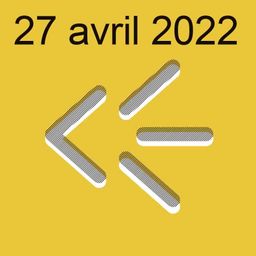Pronunciation Training at the Université du troisième âge
My Session Status
Pronunciation training at the Université du troisième âge
Ludovik Béchard-Tremblay & Paul John
Université du Québec à Trois-Rivières
Questions in English and French are welcome.
Our paper presents the pronunciation-training portion of a larger research project (ALS et aînés branchés/ESL and connected seniors) investigating the cognitive benefits of L2 acquisition among older learners (age 59+), an underrepresented population in L2 research. The participants were Quebec francophones (QFs) in an English course at the Université du troisième âge. Our presentation focuses on the pronunciation activities we developed using Google Translate, a highly flexible and easy-to-use (even for seniors) tool that promotes autonomous and ubiquitous (‘anytime-anywhere’) learning, thus contributing to ‘strategy development’ (Chapelle & Jamieson, 2008). Within the classroom, Google Translate’s text-to-speech functionality can be used for discrimination and identification perception activities to target typical QF segmental problems such as /θ ð/ and /h/ (the th- and h-sounds) and suprasegmental issues such as word stress. Changing the voice allows for High Variability Phonetic Training, which has proved to be an effective training feature (e.g. Bradlow et al., 1997). Production activities using the speech-to-text functionality allow learners to practice and verify the intelligibility of their own speech. Once learners are familiar with the technology, they can access this virtual pronunciation assistant for independent feedback beyond the confines of the classroom.
To verify the short-term benefits of such pronunciation training, pre-/post reading-aloud data were collected during the 10-week course in fall 2021 with 12 QFs (10F/2M; range 59-68 yrs; mean 63.3 yrs). The task involved reading aloud 36 phrases (e.g., a thick sweater; hop on the bus) and 25 sentences (e.g., I think I’ll order the ham and eggs; It was an unfortunate coincidence). Further data will be collected during the winter 2022 course with many of the same students to verify improvement over an extended period. Preliminary results suggest modest gains in production accuracy. Potentially, cognitive benefits of L2 learning for executive functions such as memory and attention will outstrip actual linguistic benefits such as pronunciation accuracy.
References
Bradlow, A. R., Pisoni, D. B., Akahane-Yamada, R., & Tohkura, Y. (1997). Training Japanese listeners to identify English /r/ and /l/: IV. Some effects of perceptual learning on speech production. Journal of the Acoustical Society of America, 101, 2299–2310.
Chapelle, C. A., & Jamieson, J. (2008). Tips for Teaching with CALL: Practical Approaches to Computer-Assisted Language Learning. White Plains, NY: Pearson-Longman.

